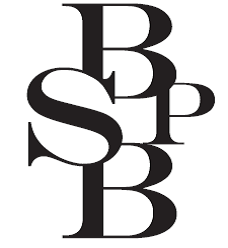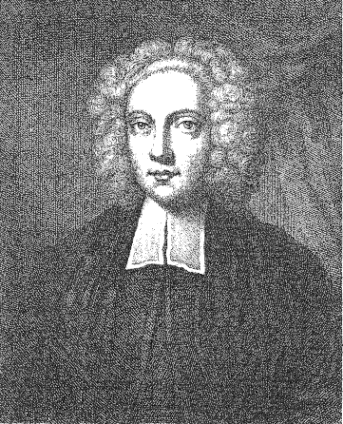Brush Up on Butler
by David & Linda White
|
Joseph Butler (1692-1752), an eighteenth-century British moralist and one of the great Anglican divines, believed that anyone could attain a vision or mindset which, if put into practice, would result in both happiness and goodness.
The practice Bishop Butler urges is not incidental but extends to the whole conduct of life. Bishop Butler's view is based on seeing human nature as a hierarchy according to which we are free to pursue any passion or desire provided only that we do not violate our own or another's happiness or the requirements of conscience. Bishop Butler believed biblical religion could be helpful in living a satisfied life, especially by stressing that this life is transitory and probationary and that we may reasonably expect complete fulfillment in a future life. There is no reason to doubt but that this whole system might be the result of evolution by natural selection, and there remain many mysterious features of both the Bible and the natural world. Bishop Butler is disarming in the frankness with which he states objections and the cool reason of his replies. |
Butler's Analogy was called by Cardinal Newman a book the reading of which marked a new era in his life, and Butler himself urged that readers be presented with premises only and allowed freely to draw their own conclusions. In the spirit of these sentiments we present the following intimations.
The purpose of this site is to provide directions to find any reference to Bishop Butler, to propagate a redacted version of his works with a convenient guide to the commentary literature, and to facilitate in the discussion of this work and the resultant conduct of life.
The Butler Bibliography (PDF) is the whole collection of Butler references world-wide, supplemented by an introductory collection of quotations, with historical commentary and a list of some new and favorite links. The Works of Bishop Butler, with commentary (PDF), in a consolidated redaction are here. Comments on the text or the bibliography are most conveniently sent to the Yahoo! group bp-butler, and comments on the content of a particular passage to the Yahoo! group joseph-butler. There is a guide to the places we have visited and a graphics collection.
Propagation of Butler material is supported by a tax-exempt limited liability corporation, The Bishop Butler Society, Ltd. At St. John Fisher College, the Butler material is presented in fifteen courses of performative philosophy. At St. Paul's Episcopal Church in Rochester we work with the Christian Pathways group for Christian Formation. In the larger community we have courses at Writers & Books in Rochester and at Books &c in Macedon. There has always been a close association between the Bishop Butler project and DeBue's Books of Lima and Greenwood Books of Rochester.
Acknowledgements
The Christian Pathways group at St. Paul's Episcopal Church (Rochester, NY) has been involved since the earliest years of this project. The directors of the Bishop Butler Society are all old friends and helpers. The University of Rochester Press edition was a team effort including Stephen Taylor (Reading), Wade Robinson (Rochester Institute of Technology) and Timothy Madigan, now at St. John Fisher. Russ Dancy was the first to suggest intensive work on Butler as a remedy for the problems we manifested, and through the years Jerome Schneewind (The Johns Hopkins), John Perry (Stanford), and David Brown (Durham) have provided helpful consultations and enthusiasm. Two graduate students who merit special commendation are Karen Beck and Robert Zack, Jr.
Staff at the British Library, Lambeth Palace Library, Oriel College Library, the Bodleian Library, Bath Public Library, Bristol Public Library and the libraries at Durham were all unfailingly curious and helpful. In America, services provided by the Houghton Library, Yale University Libraries, Columbia University Libraries and the New York Public Library were superb. In Rochester, the Ambrose Swasey library at the Colgate Rochester Crozer Divinity School and the University of Rochester libraries provided essential local services, as did, of course, the Lavery Library at St. John Fisher College.
Al Grosser manages the warehouse, maintains the workspaces and dispenses spiritual advice not readily available elsewhere.
The purpose of this site is to provide directions to find any reference to Bishop Butler, to propagate a redacted version of his works with a convenient guide to the commentary literature, and to facilitate in the discussion of this work and the resultant conduct of life.
The Butler Bibliography (PDF) is the whole collection of Butler references world-wide, supplemented by an introductory collection of quotations, with historical commentary and a list of some new and favorite links. The Works of Bishop Butler, with commentary (PDF), in a consolidated redaction are here. Comments on the text or the bibliography are most conveniently sent to the Yahoo! group bp-butler, and comments on the content of a particular passage to the Yahoo! group joseph-butler. There is a guide to the places we have visited and a graphics collection.
Propagation of Butler material is supported by a tax-exempt limited liability corporation, The Bishop Butler Society, Ltd. At St. John Fisher College, the Butler material is presented in fifteen courses of performative philosophy. At St. Paul's Episcopal Church in Rochester we work with the Christian Pathways group for Christian Formation. In the larger community we have courses at Writers & Books in Rochester and at Books &c in Macedon. There has always been a close association between the Bishop Butler project and DeBue's Books of Lima and Greenwood Books of Rochester.
Acknowledgements
The Christian Pathways group at St. Paul's Episcopal Church (Rochester, NY) has been involved since the earliest years of this project. The directors of the Bishop Butler Society are all old friends and helpers. The University of Rochester Press edition was a team effort including Stephen Taylor (Reading), Wade Robinson (Rochester Institute of Technology) and Timothy Madigan, now at St. John Fisher. Russ Dancy was the first to suggest intensive work on Butler as a remedy for the problems we manifested, and through the years Jerome Schneewind (The Johns Hopkins), John Perry (Stanford), and David Brown (Durham) have provided helpful consultations and enthusiasm. Two graduate students who merit special commendation are Karen Beck and Robert Zack, Jr.
Staff at the British Library, Lambeth Palace Library, Oriel College Library, the Bodleian Library, Bath Public Library, Bristol Public Library and the libraries at Durham were all unfailingly curious and helpful. In America, services provided by the Houghton Library, Yale University Libraries, Columbia University Libraries and the New York Public Library were superb. In Rochester, the Ambrose Swasey library at the Colgate Rochester Crozer Divinity School and the University of Rochester libraries provided essential local services, as did, of course, the Lavery Library at St. John Fisher College.
Al Grosser manages the warehouse, maintains the workspaces and dispenses spiritual advice not readily available elsewhere.


